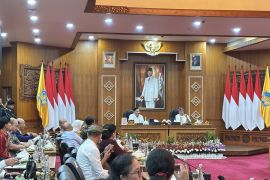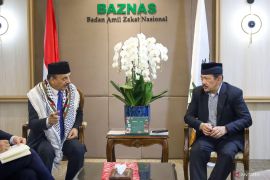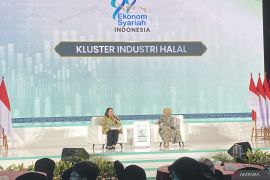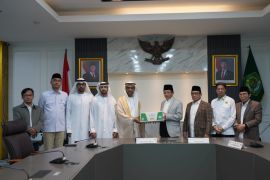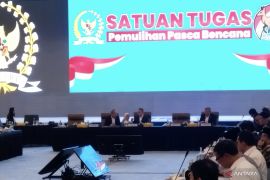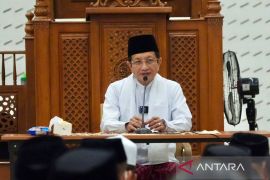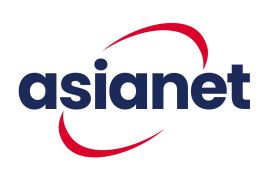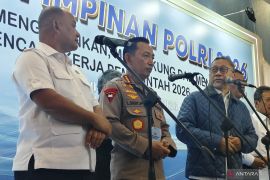"It will also play a major role in the integration of the toll road segments as well as in improving the business model and technical aspects of electronics," BI Governor Agus Martowardojo said.Jakarta (ANTARA News) - The Public Works and Public Housing Ministry (PUPR), in cooperation with Bank Indonesia, will establish an electronic toll collection (ETC) consortium to set up a non-cash payment system on toll roads, which is targeted to operate thoroughly in Oct 2017.
The shareholders of the consortium will consist of various stakeholders from bank companies, toll road enterprises, and switching companies.
The consortiums role is to manage electronic payment facilities and infrastructure on toll roads, such as system and procurement of "reader," data synchronization, and proportional profit sharing.
"It will also play a major role in the integration of the toll road segments as well as in improving the business model and technical aspects of electronics," BI Governor Agus Martowardojo told the press here on Wednesday.
The establishment of the consortium is in line with governments target to change every payment in the toll roads using non-cash or electronic mechanism.
BI has set a target to manage non-cash payment system in 35 toll roads in Oct 2017. Currently, only 25 percent of total payments in 35 toll roads in Indonesia are using non-cash payment.
"Hence, this consortium is one of the required institutional aspects to be established," Martowardojo noted.
In addition to the institutionalization, electronicfication of all toll roads will also change the business model of various participating companies on the highways.
Among some changes is the business commission that the bank must pay to the operator for the non-cash payment application of 0.3 percent, which will be replaced by a merchant discount rate (MDR) system. MDR will be implemented after the ETC consortium is officially established.
To add incentives for banks to integrate, BI will also allow banks to charge additional commissions to customers when charging an electronic money balance used to pay for toll services. Such fee will be regulated in the revision of Bank Indonesia regulation concerning electronic money.
Technically, BI and the PUPR Ministry divide the four stages of non-cash electronication including the electronification stage of the entire toll road in October 2017, the integration of the toll road system, the integration of toll roads and the establishment of the Electronic Toll Collection Consortium (ETC) as well as the implementation of Multi Lane Free Flow (MLFF), as a process of payment of tolls which not require the drivers to take a long stop.(*)
Editor: Heru Purwanto
Copyright © ANTARA 2017


